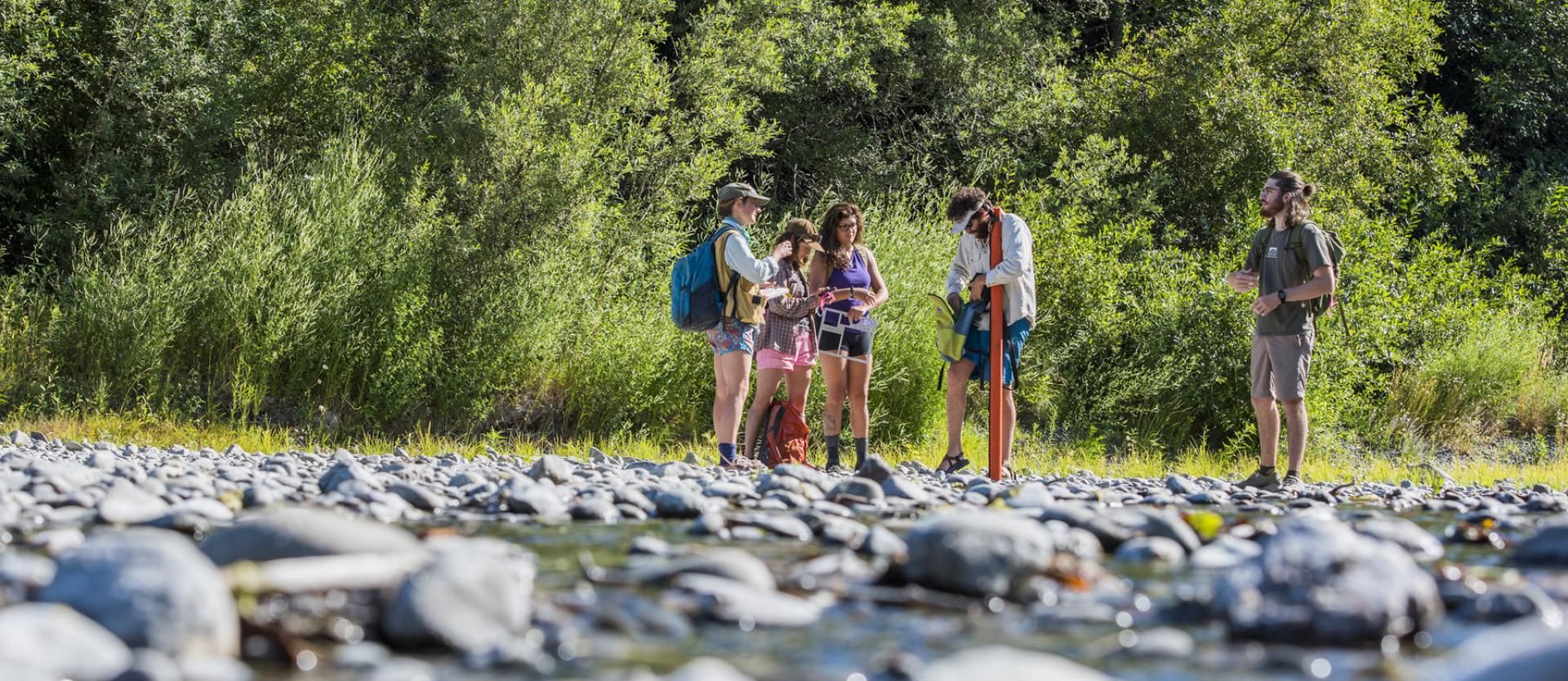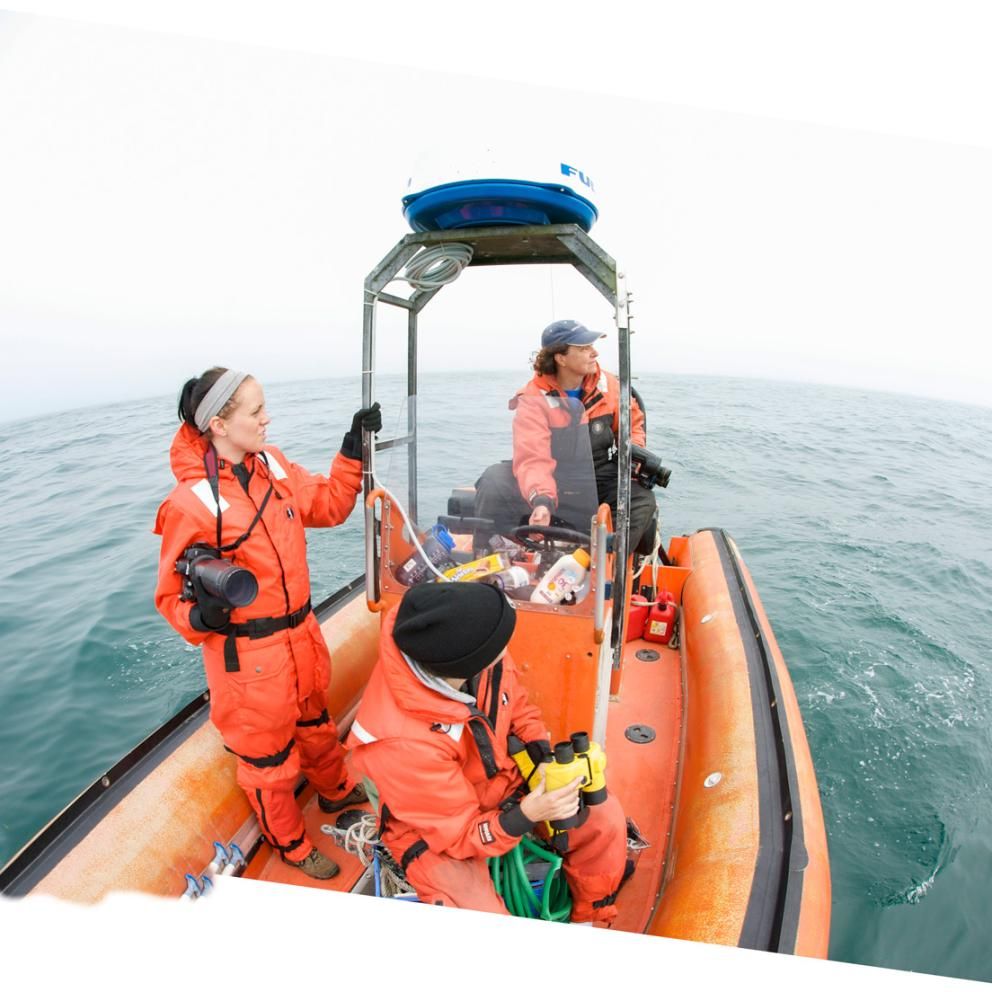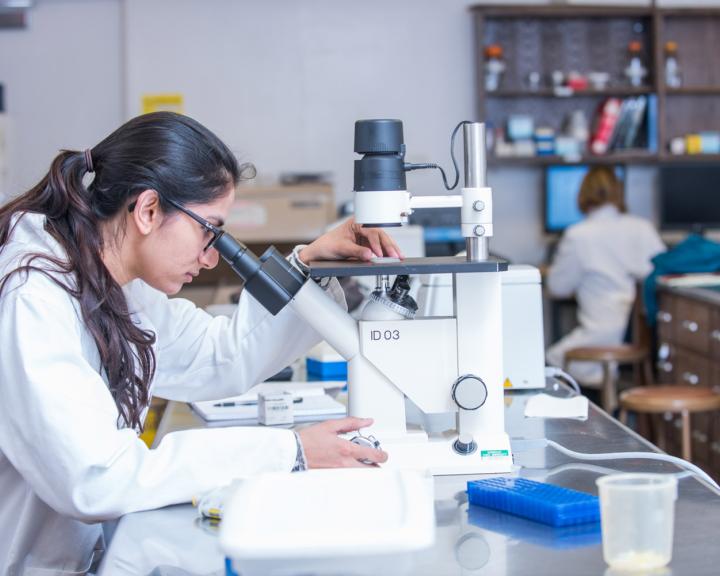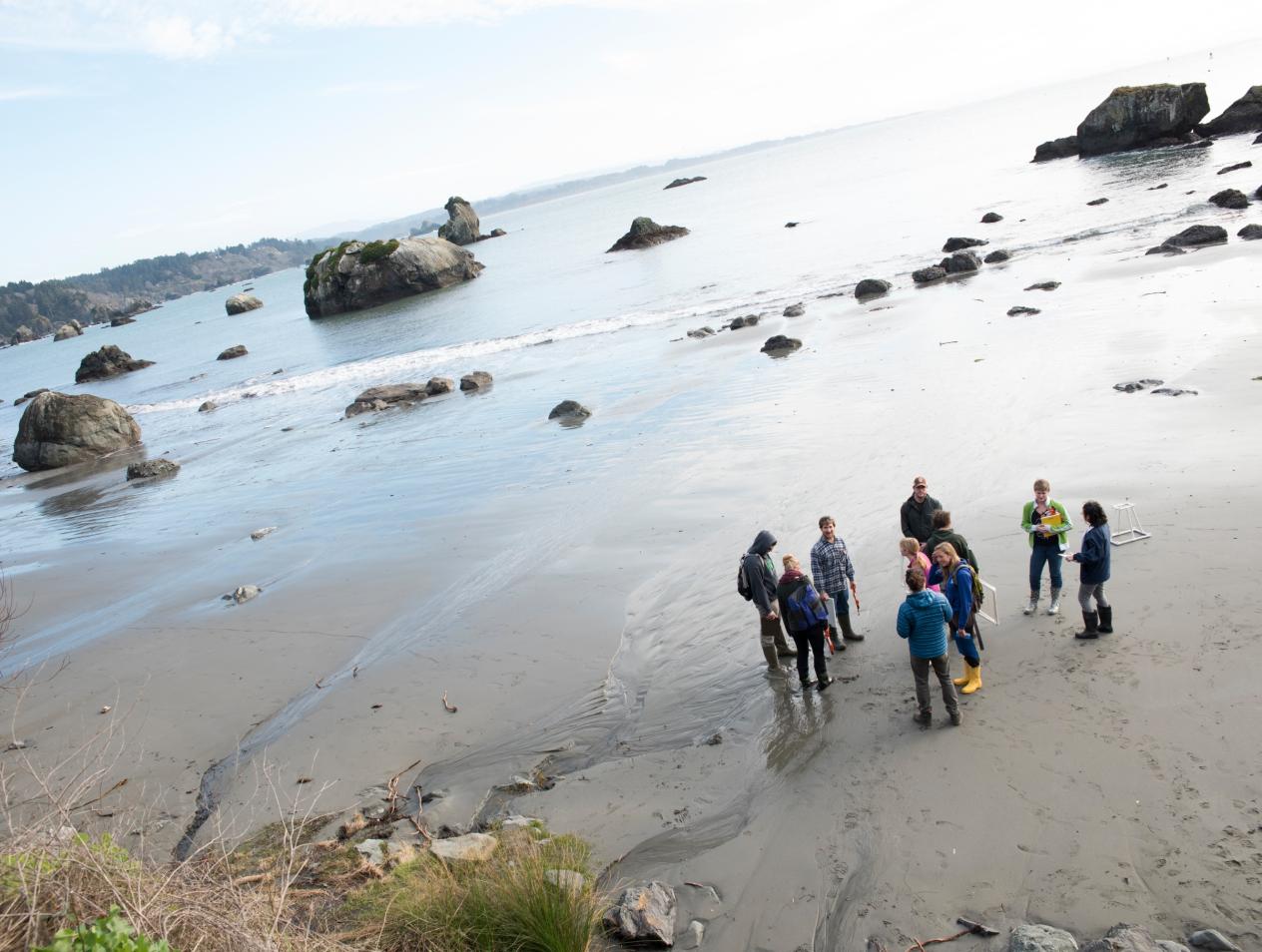Breadcrumb
Biology M.S.
If you are interested in studying life, it would be hard to find a place with a greater diversity of organisms and ecosystems to choose from than Cal Poly Humboldt. The University is surrounded by relatively pristine biological habitats that provide a wealth of challenging opportunities for study at the master’s level by the aspiring biologist, botanist, or zoologist. These habitats are home to thousands of different animals, plants, and fungi, many of which are unique to northwestern California.
Why this program
Field opportunities include the Marine Lab (a short drive from the campus), the Arcata Community Forest behind campus, and a 90-foot ocean going research vessel, RV Coral Sea.
There are a number of teaching associate positions available to graduate students through the Biology department. Assignments typically include teaching one lab each semester.
Labs on campus are equipped for biotechnology, scanning and transmission electron microscopy, mammalogy, genetic analysis, including DNA sequencing, and computer modeling.

Application Information
Graduate students in the Master of Science program in the Biological Sciences can choose to pursue investigations with an emphasis in the laboratory, forests, marine habitats, or a variety of other settings.
Did You Know?
Our graduate program is part of the Western Regional Graduate Program, allowing students from the Western United States and territories to pay in-state tuition.
Outstanding natural environments include ocean and estuarine areas, undeveloped coastal dunes, redwood forests, alpine and subalpine forests, and state and national parks and forests.
Aboard our 90-foot ocean going research vessel, the R/V Coral Sea, students collect and analyze marine plants and animals in their natural environments.

Careers
Favorable opportunities can be expected for biological scientists with advanced degrees. Employment in the life sciences is expected to grow due to recent advances in genetic research, advances in biological technology, and efforts to conserve the environment.
- Field Technicians
- Ecologists
- Microbiologists
- Physiologists
- Marine Biologists
- Geneticists
- Cellular and Developmental Biologists
- Biotechnology/Bioinformatics Researchers
- Naturalists
- Environmental Consultants

Apply
To apply to our program, follow the step-by-step application instructions
For further information contact:
Dr. Paul Bourdeau
Graduate Coordinator
Department of Biological Sciences
paul.bourdeau@humboldt.edu






